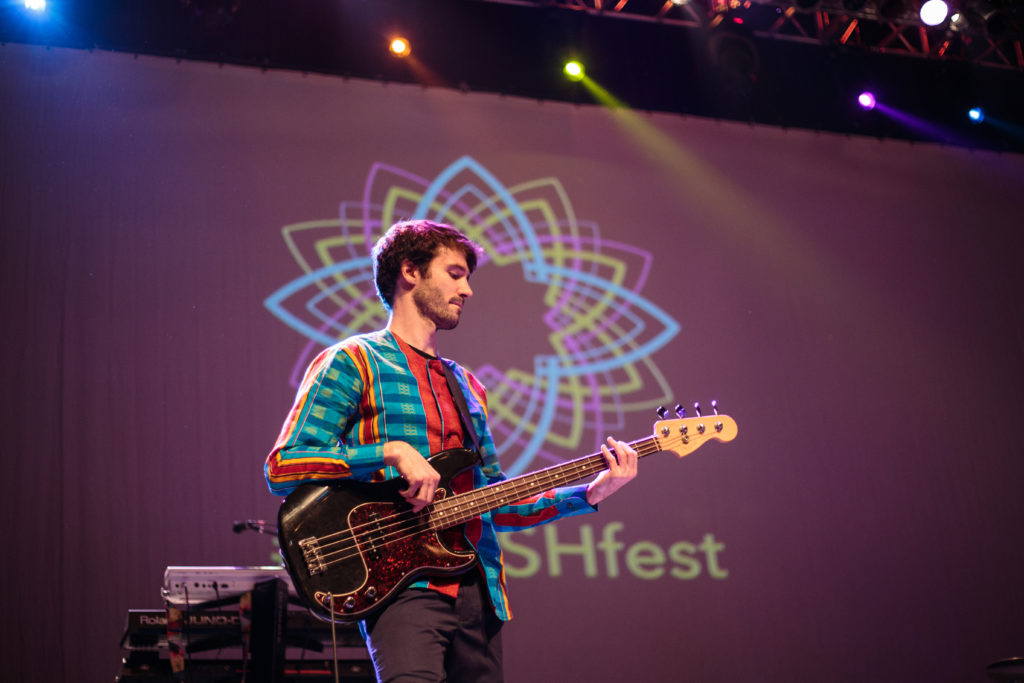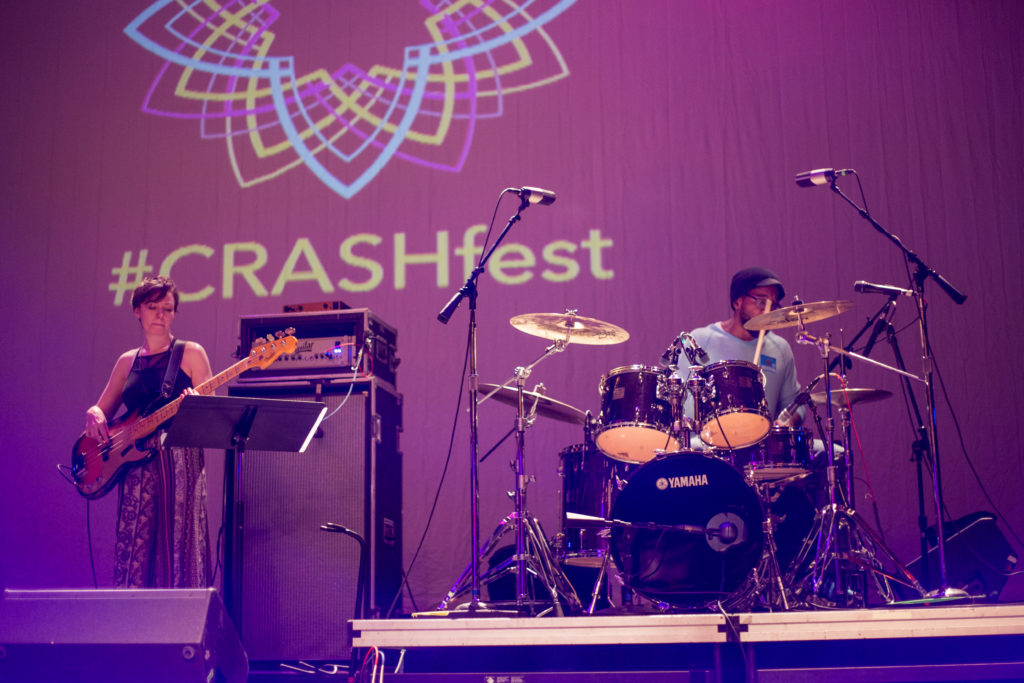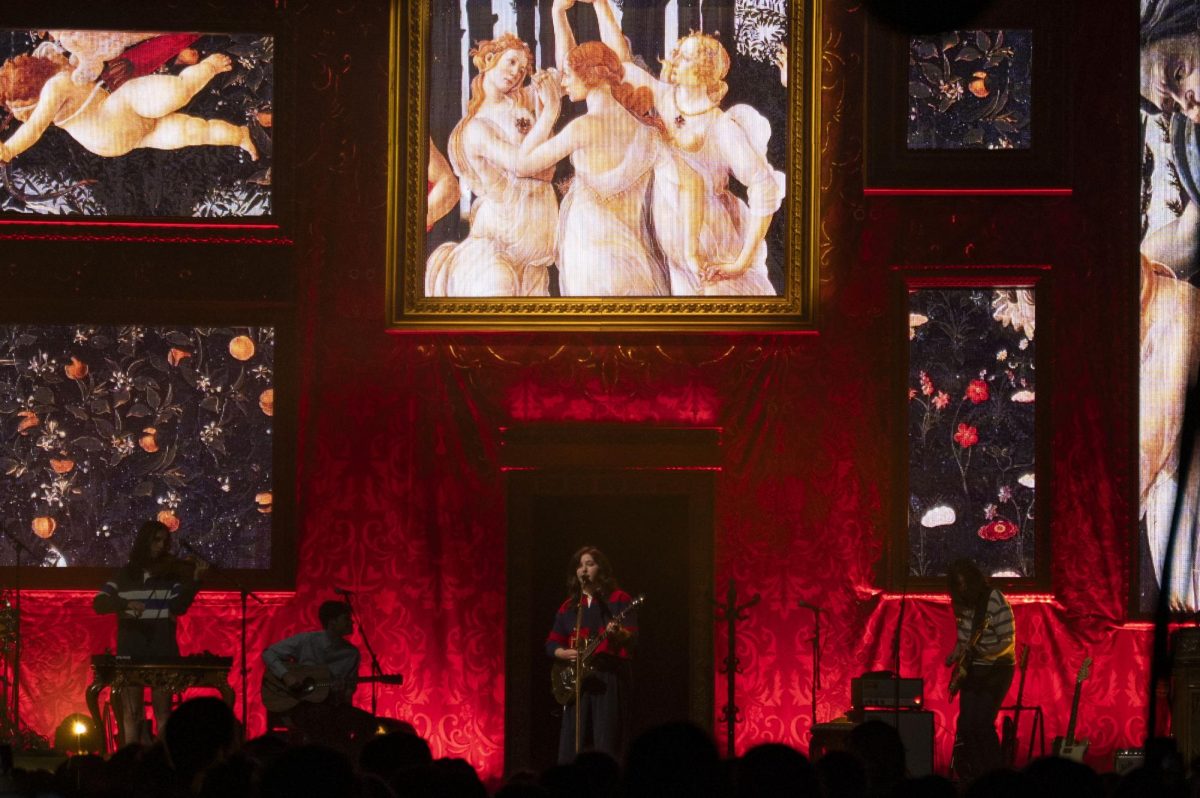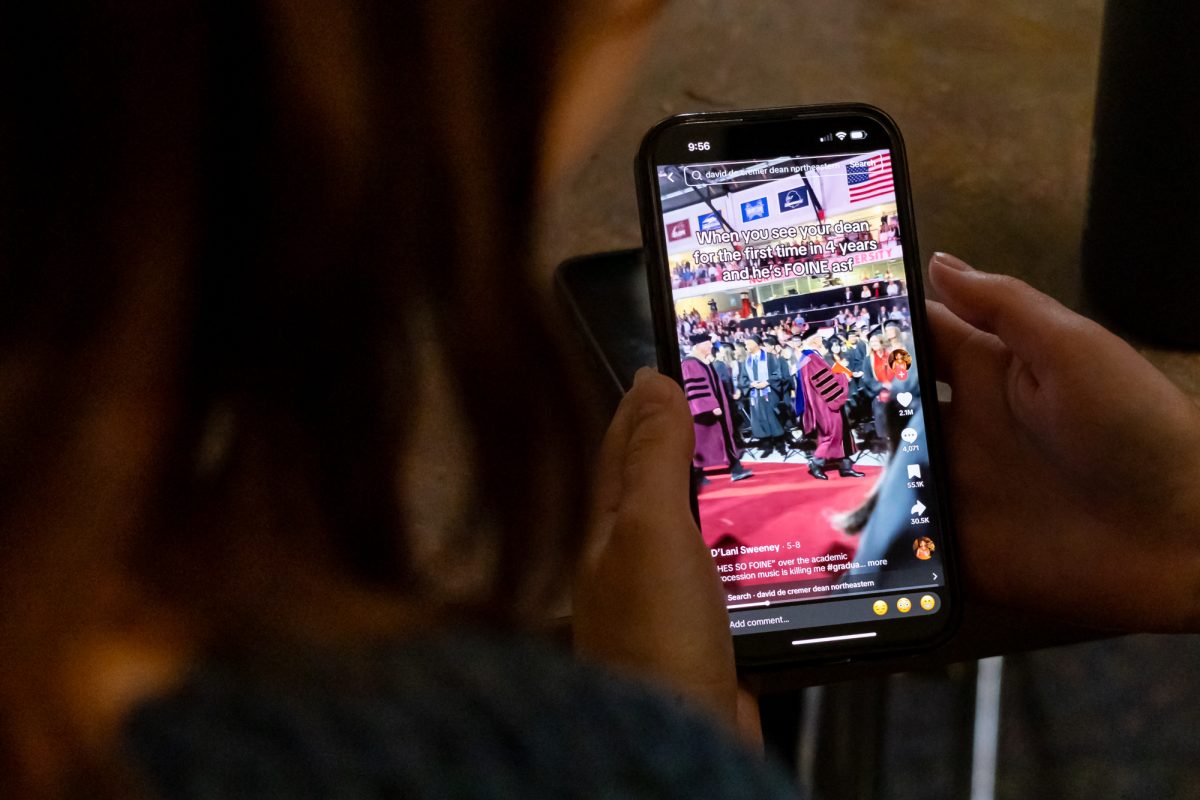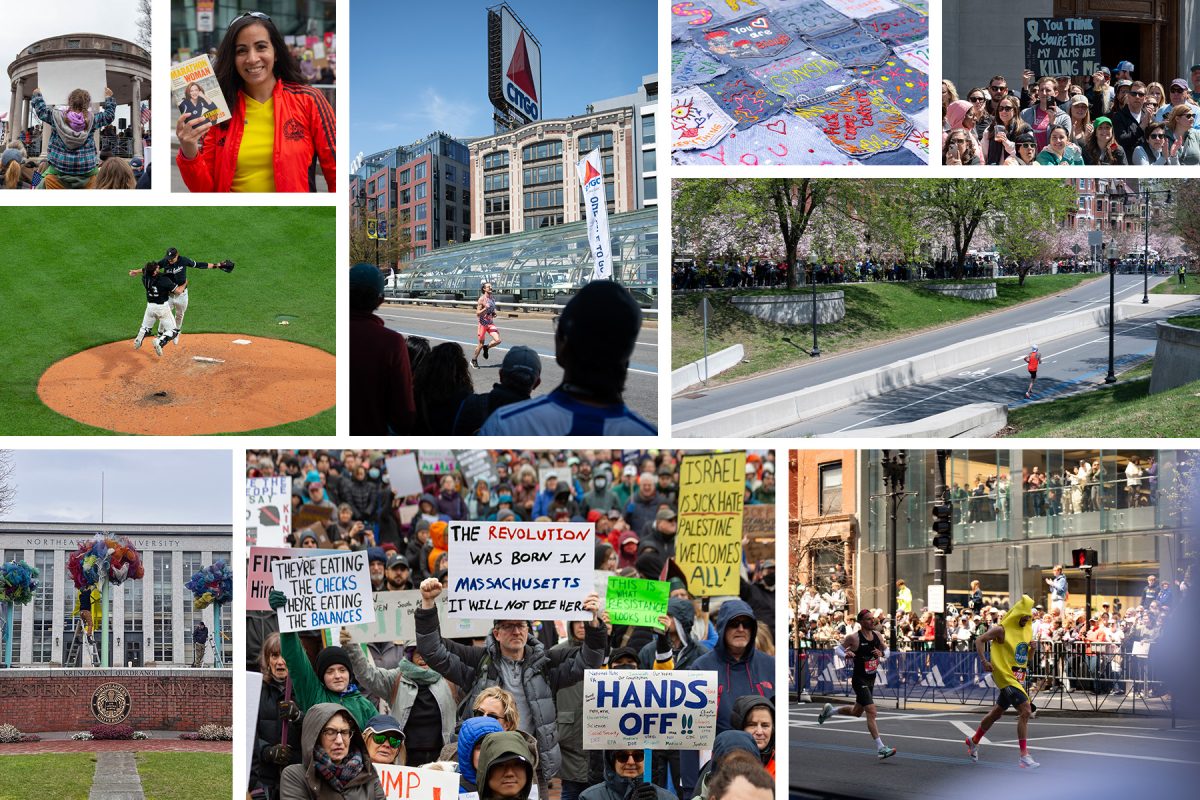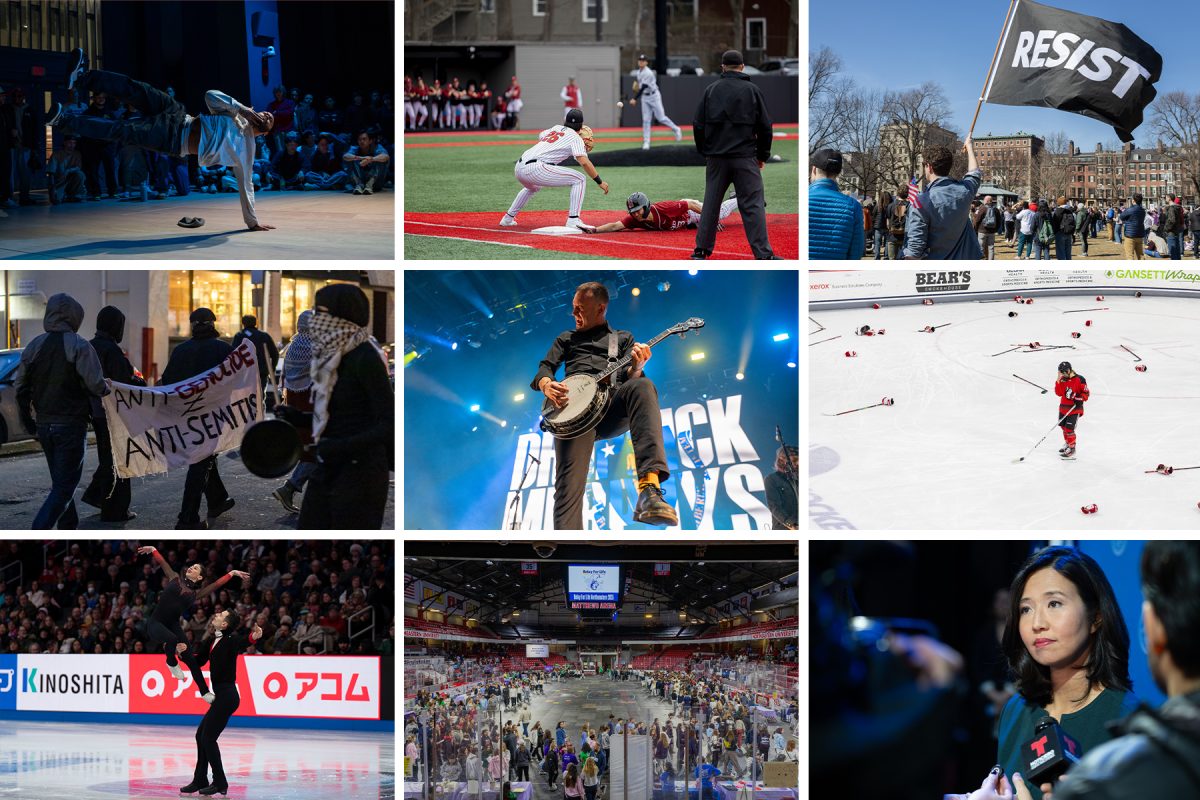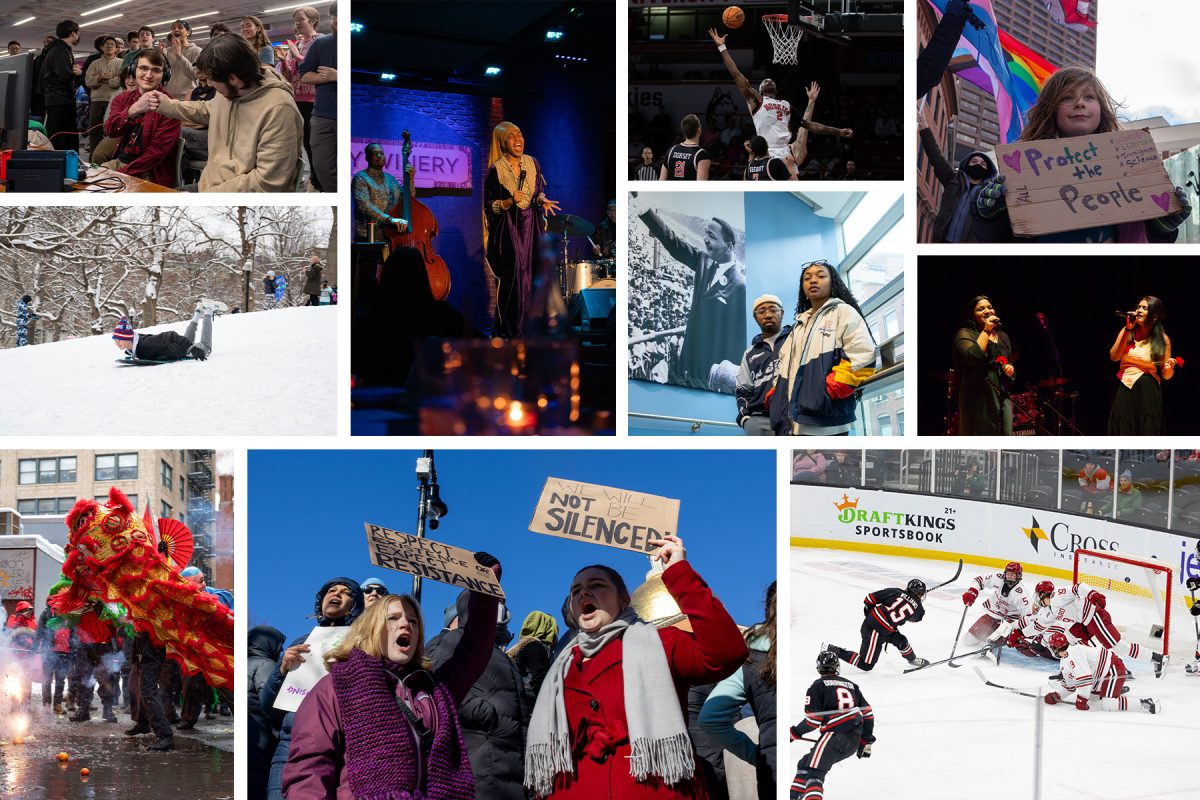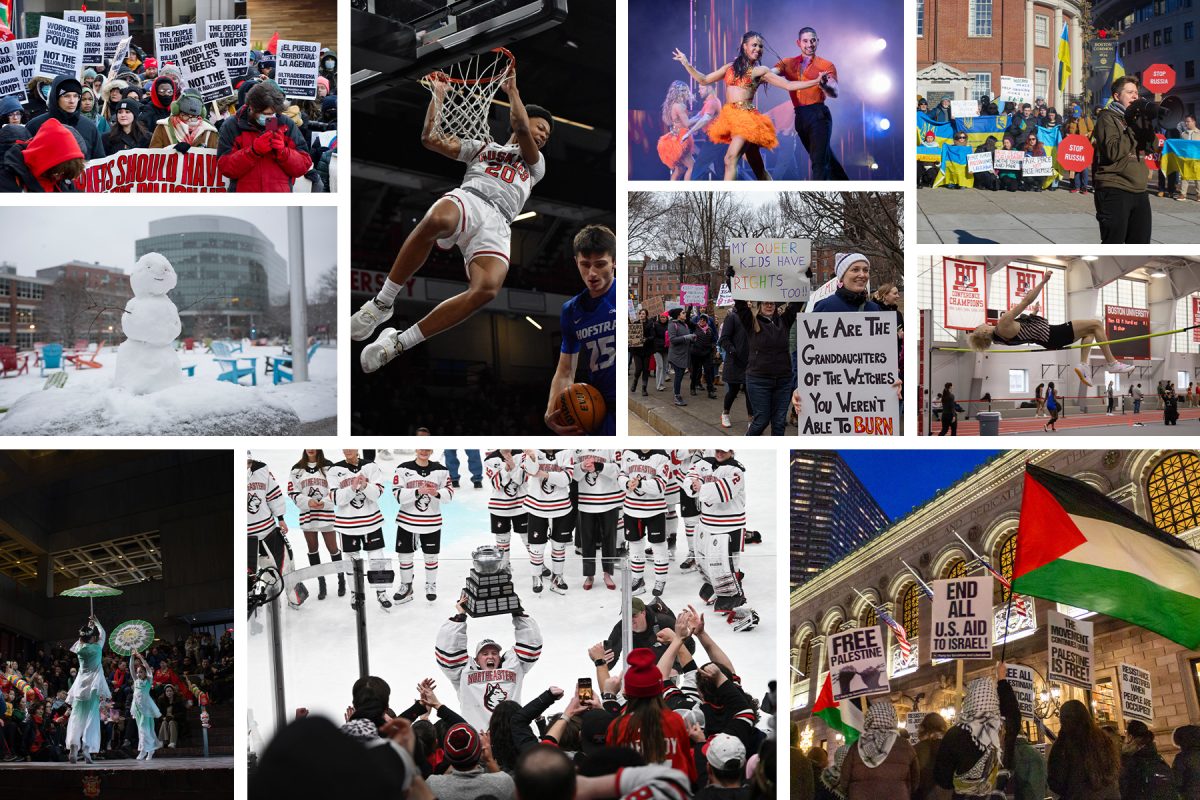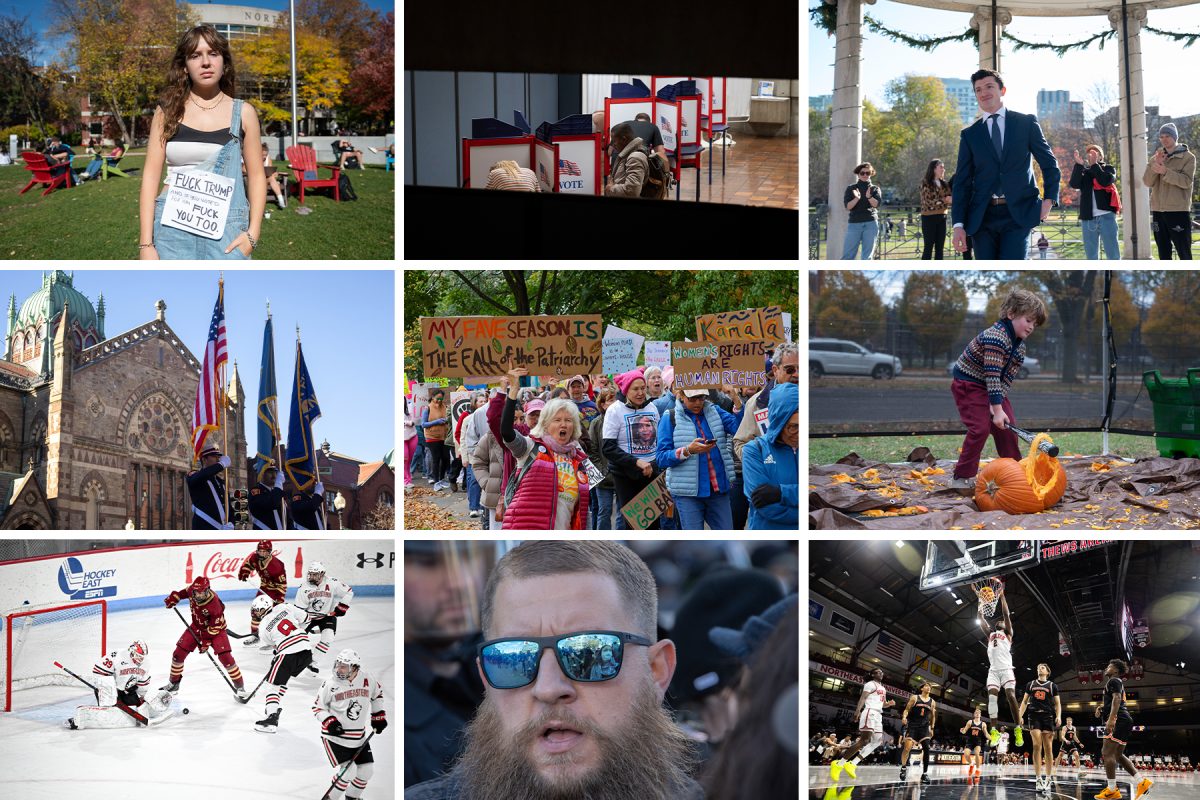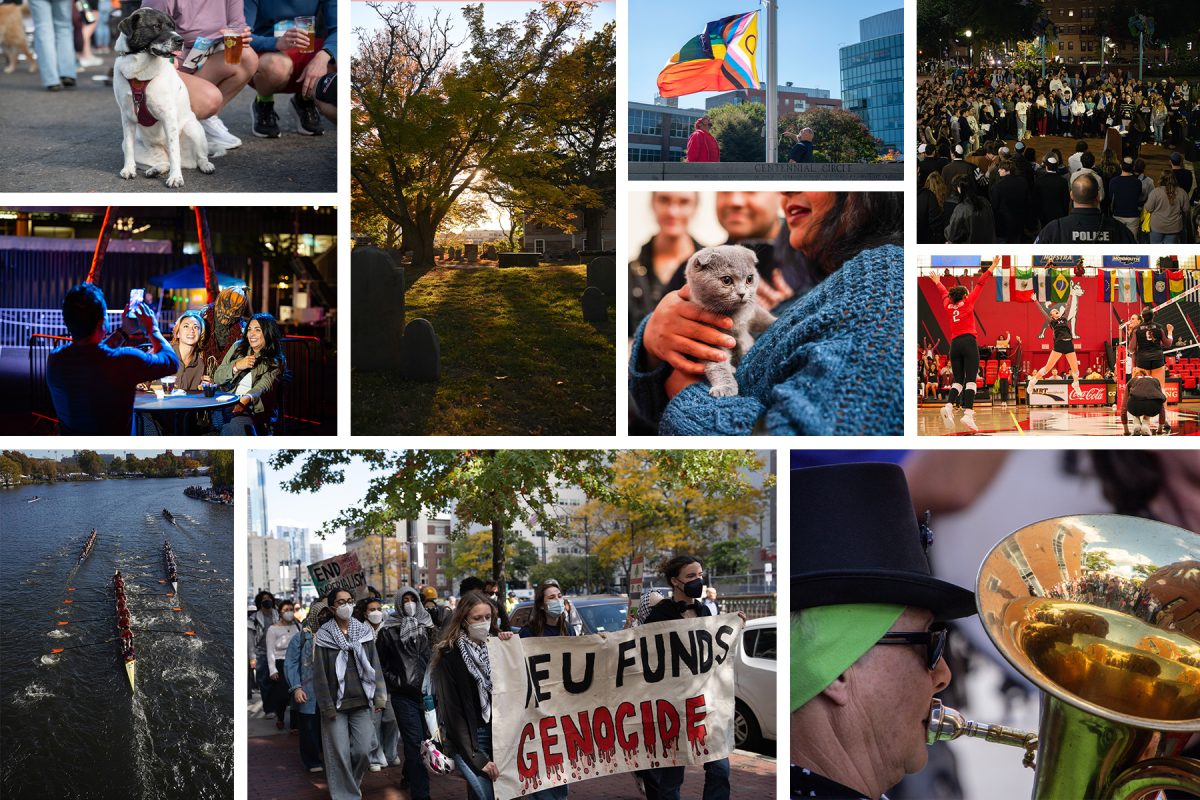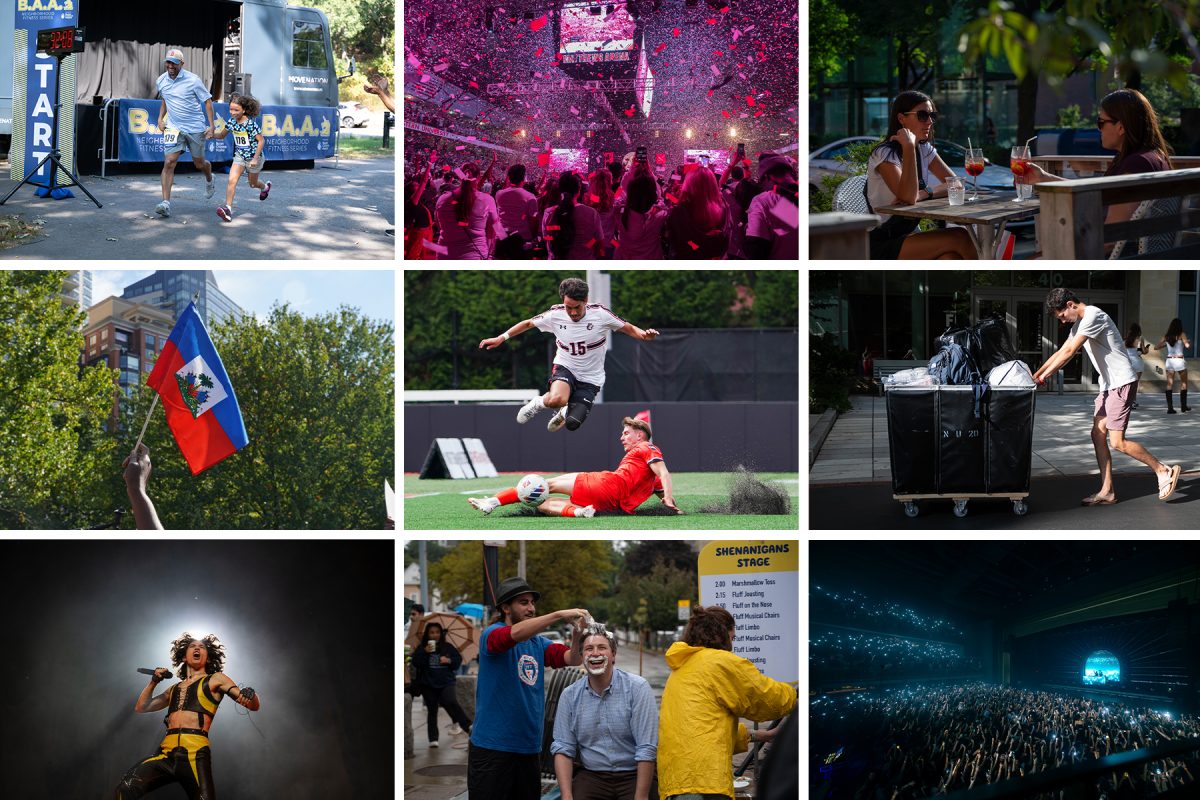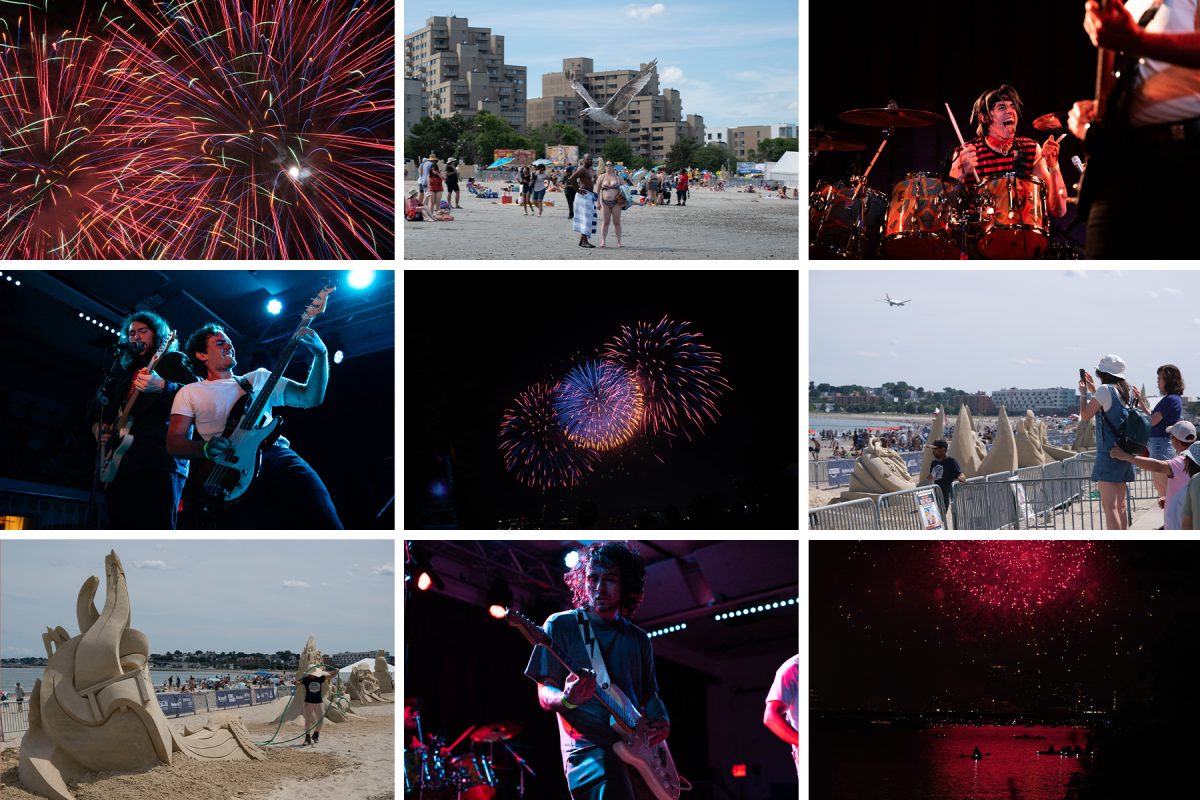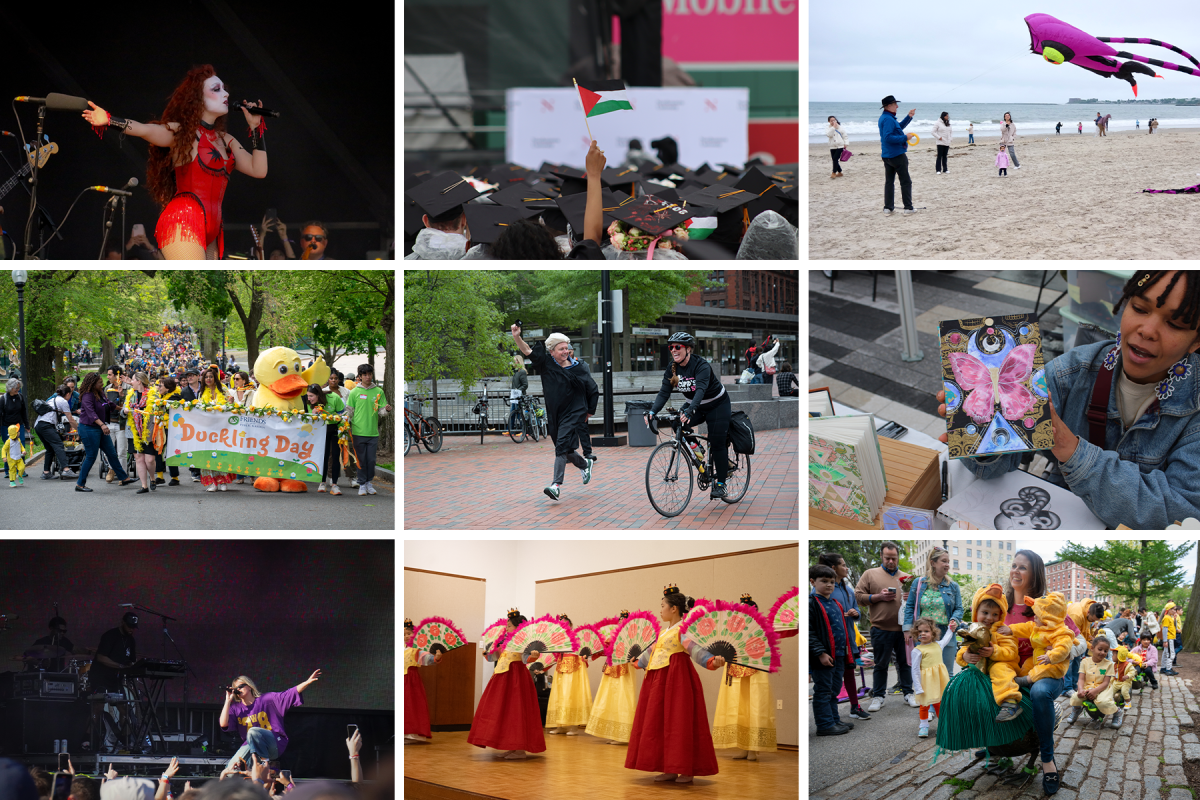By Kiana Jones, lifestyle co-editor
The interweaving sounds of multinational music performed by several artists can be heard beyond the walls at House of Blues Boston. Entering through a breezy passageway, ticket holders are greeted with smiles from event staff who operate a welcome booth of temporary tattoos, membership bags and earplugs. Exploring the venue feels like traveling the world in 80 seconds.
This is the scene at CRASHfest, a Boston-based global indoor music festival that includes band performances, food, art and dance classes that engage crowds through an infectious, positive energy.
Exemplifying the phrase “Music Knows No Borders,” art-focused nonprofit World Music/CRASHarts has hosted the festival for 25 years in an effort to create an atmosphere of inclusion that represents today’s global community, according to the CRASHfest website.
“You have crowds of people from around the world dancing to ethnic music they’ve never heard before and it’s bringing them together,” said CRASHfest volunteer Ibrahim Rashid, a fourth-year international relations major at Boston University.
Five musical acts graced the main stage, keeping the floorboards vibrating and the energy high. The acts included last year’s Latin Grammy winner Flor De Toloache, Mali native Vieux Farka Touré, Indo-Pakistani musician Zeshan B, afro-fused band Mokoomba from Zimbabwe and indie-dance pop band Rubblebucket.
The musicians brought different worlds of music together to crowds, with obvious passion in their vibrant performances. Each of them embraced their traditional roots while creating unique styles of sound based on their experiences.
“It’s types of music I don’t normally listen to so it’s cool to get exposed to them,” attendee Aidan Keohane said. “The music just makes you feel good. It makes people want to dance.”
Benjamin Maggio, who attended CRASHfest in support of his friends who performed as part of the Boston-based band Kotoko Brass, said he was excited about the night’s lineup.
“My favorite thing about CRASHfest is that they bring so many bands that play African music,” said Maggio, a Tufts University alumnus who studied ethnomusicology. “It’s what I love, and I love learning about bands I haven’t heard of before.”
Kotoko Brass formed as a band last year, but members have played together in other musical projects since 2011. Of the band’s eight members, three are from the United States, two are from Ghana, one is from Japan and one is from Antigua.
The band finds inspiration in many music genres, American drummer Ben Paulding said. Kotoko Brass has incorporated styles that share a common heritage of West African traditional drum and dance, including reggae, New Orleans jazz, afrobeat and West African highlife, to name a few.
“I’ve spent a lot of time inspired by the traditional music of Ghana and used that to create stuff on the drumset,” said Brian Paulding who plays the trombone. “Fusing traditional instruments together with Poku became the sort of foundation we wanted to lay the other instruments on.”
A majority of the night’s performances were held at the main stage, including dance lessons from Brazilian Samba ensemble SambaViva, a West African drum and dance show from Boston-based Paa Sek Diery Band and circus-party music from the jovial Emperor Norton’s Stationary Marching Band. Surrounding the mezzanine were global street food vendors such as Basho Japanese Brasserie, Indulge India, Jamaica Mi Hungry, Mo’Rockin Fusion and Moyzilla, among others.
Casey Monroe, who studies art history at Boston University, said it was “enlightening and fun” to immerse himself in cultures that he once knew little about.
“Exposure to different cultures and different ways of thinking is really important. Even how this [African] music and culture has influenced our culture so much,” Monroe said. “As someone who studies American culture, it’s really something to think about.”
After taking photos in the Snap Boxx photo booth with her friends, attendee Khangelani Mhlanga said they were most excited to see Mokoomba because the band brings back a sense of home for them.
“CRASHfest was just what I expected. There are a lot of different people and the diversity is very nice,” Mhlanga said. “I think it [CRASHfest] is important on how it brings people of different cultures together.”
Nonprofit organization Project Citizenship also partnered with World Music/CRASHarts to host a social action station at the event. Project Citizenship educates immigrants on the benefits of citizenship and helps eligible immigrants become naturalized.
“We want to promote the positivity of immigrants: how they are so helpful to the economy, to the government and to society. It’s been a great success so far,” said Matthew Jose, Project Citizenship’s director of programs and development.
Since its inception in 2014, Project Citizenship has helped more than 4,000 immigrants apply for citizenship. At CRASHfest, attendees sent more than 400 letters advocating their support toward immigrants to the director of U.S. Immigration.
“[By signing] it’s you saying you’re here because you are supportive of immigrants and international music,” Jose said. “We want the federal government to be more supportive, open and welcoming to immigrants.”
The festival’s message encouraged others to explore cultures outside their own.
“I think that ‘Music Knows No Borders’ means that no matter where the world is, good or bad, there’s always going to be music and I think that’s going to be a good thing,” Keohane said.


